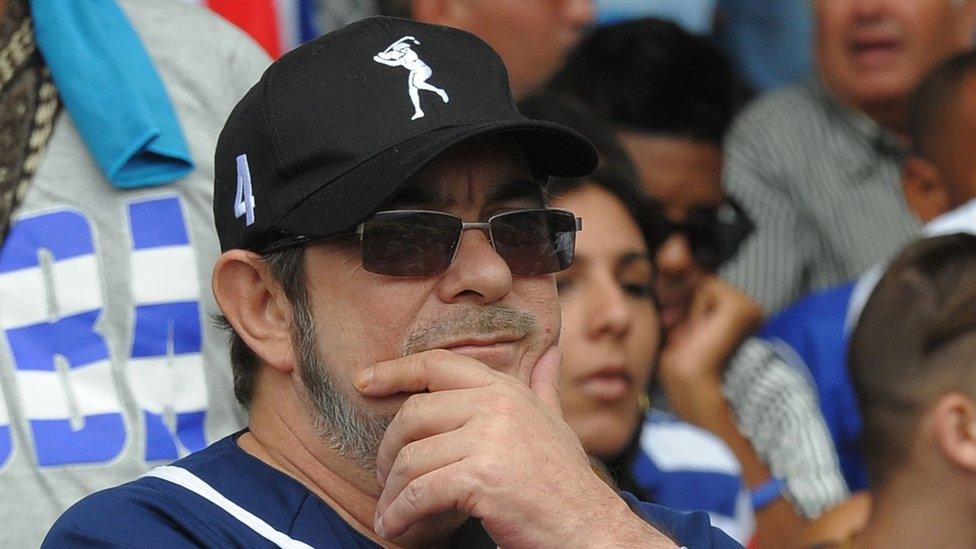Farc's 'definitive' ceasefire takes effect in Colombia
- Published
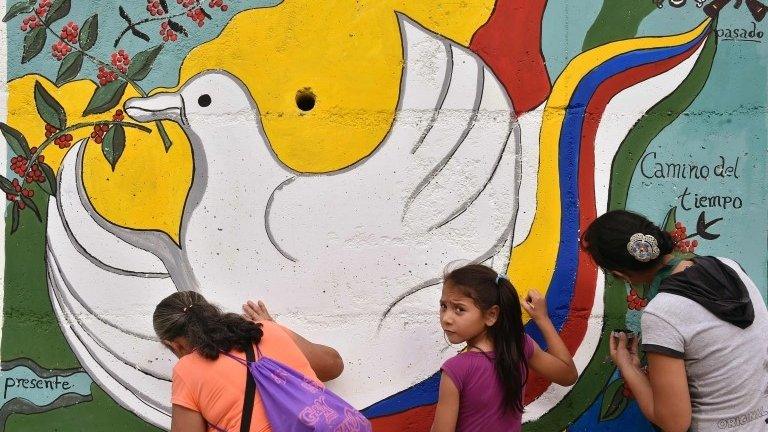
The Farc has been fighting since 1964 in a conflict that has displaced millions
A ceasefire has come into effect in Colombia between the main leftist rebel group and the government, ending one of the world's longest insurgencies.
The ceasefire at midnight local time (05:00 GMT Monday) came after four years of peace talks in Cuba between the Farc and the government.
The final agreement on ending the 52-year-old war will be signed next month.
Farc leader Rodrigo Londono, known as Timoleon Jimenez or Timochenko, gave the order to stop firing.
"Never again will parents be burying their sons and daughters killed in the war,'' Timochenko told journalists. "All rivalries and grudges will remain in the past," he said.
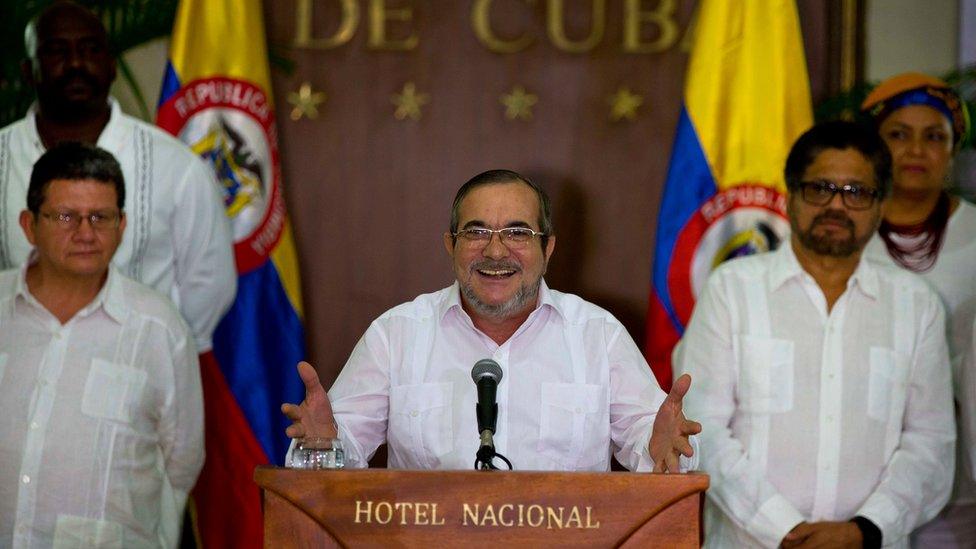
Farc leader Rodrigo Londono, better known under his alias of Timoleon Jimenez or Timochenko, announced the start of the ceasefire in Havana
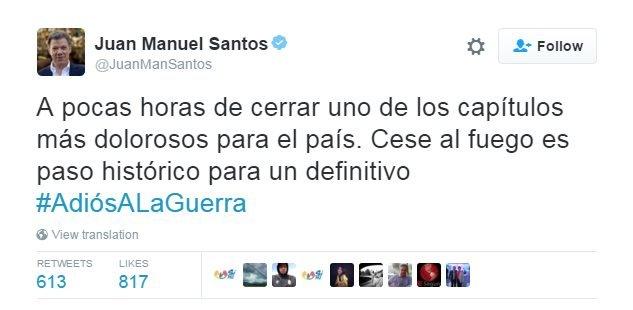
Colombian President Juan Manuel Santos signed a decree earlier to halt military operations against the Farc, also from midnight.
"One of the country's most painful chapters" was coming to an end, he said in a tweet on Sunday, calling the ceasefire a "historic step".

Crucial milestone: Analysis by Will Grant, BBC News, Havana

In one sense, the Farc's announcement of a total ceasefire is purely procedural. In another, it is a historic moment towards a lasting peace. It is procedural in that the bilateral ceasefire had already been agreed and there has in effect been a truce on the ground for several months.
But the definitive ceasefire was supposed to come into force the day after the final peace agreement was signed by President Santos and the leader of the Farc, Timoleon Jimenez - an event expected in Cartagena at the end of September. This moves that forward in a gesture of goodwill on both sides.
It is historic in that - finally - it brings to an end more than 50 years of conflict which left an estimated 260,000 people dead and millions internally displaced. These milestones are crucial for the Colombian peace process.
Perhaps more important is what comes next: a popular vote on the agreement in early October. That will decide the fate of the years of negotiation in Havana and, in the process, the political futures of both President Santos and the Farc.

A peace agreement was announced on Wednesday in Havana, at the peace talks.
Farc fighters will ratify the accord in September and a Colombian popular vote on the agreement will follow on 2 October.
Colombian author Juan Gabriel Vásquez reflects on a peace deal after 52 years of conflict
Under the terms of the agreement, the Farc (the Spanish acronym for the Revolutionary Armed Forces of Colombia) will give up its armed struggle and join the legal political process.
In March Colombia announced the start of peace negotiations with the second largest rebel group, the National Liberation Army (ELN), but the rebels have yet to meet the government's precondition of releasing all of their hostages and stop all kidnapping.

The Farc's 52-year fight

1964: Set up as armed wing of Communist Party
2002: At its height, with an army of 20,000 fighters controlling up to a third of the country
2008: The group's worst year, when it suffered a series of bitter defeats
2012: Start of peace talks in Havana
2016: Definitive ceasefire

Are you in Colombia? Can the ceasefire be maintained? Email haveyoursay@bbc.co.uk, external with your experiences.
If you are willing to speak further to a BBC journalist, please include a contact telephone number.
Email your pictures to yourpics@bbc.co.uk, external, upload them here, external, tweet them to @BBC_HaveYourSay, external or text 61124. If you are outside the UK, send them to the international number +44 7624 800 100.
Or WhatsApp us on +44 7525 900971
Read our terms and conditions.
- Published24 November 2016
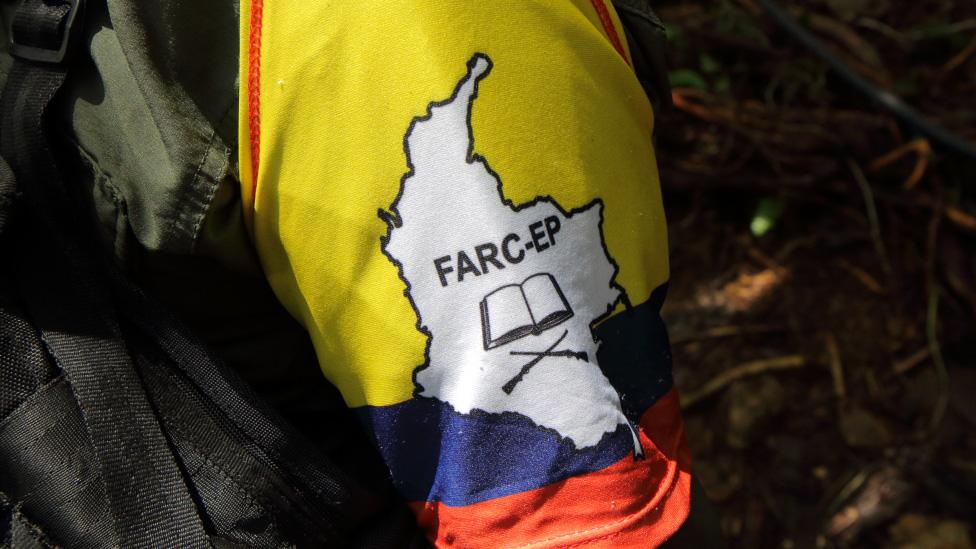
- Published28 August 2016
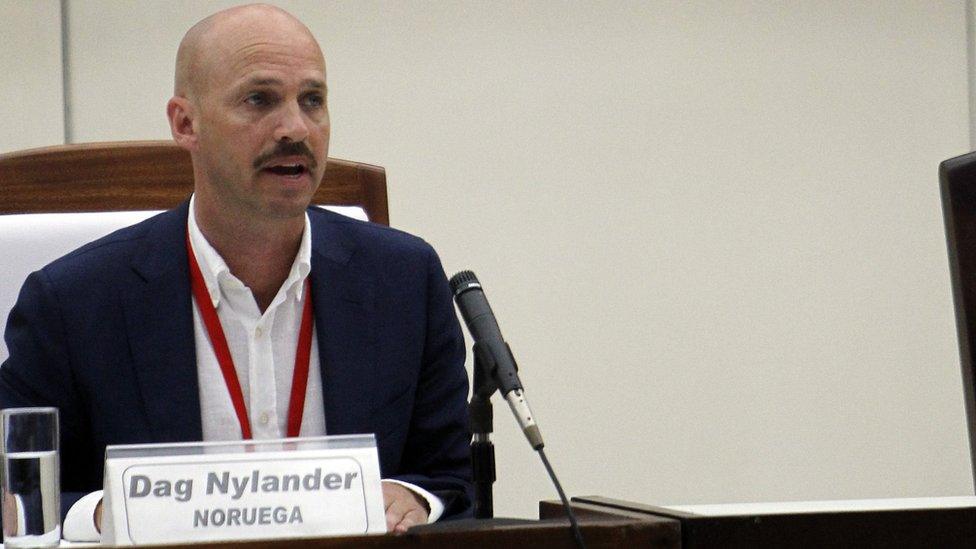
- Published25 August 2016
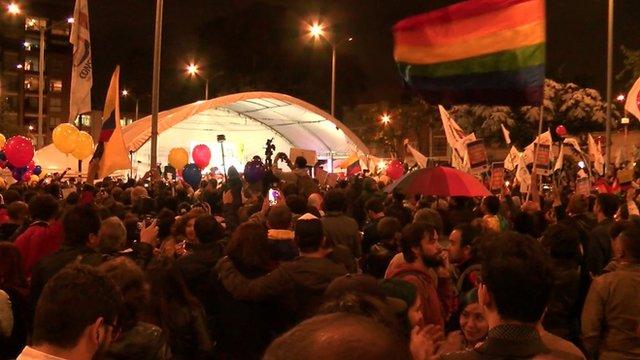
- Published6 October 2016
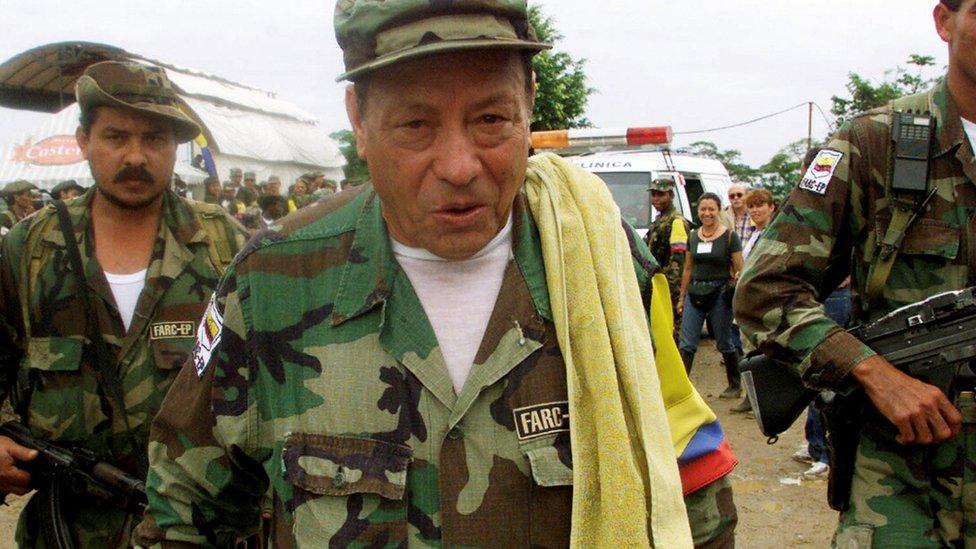
- Published24 November 2016
